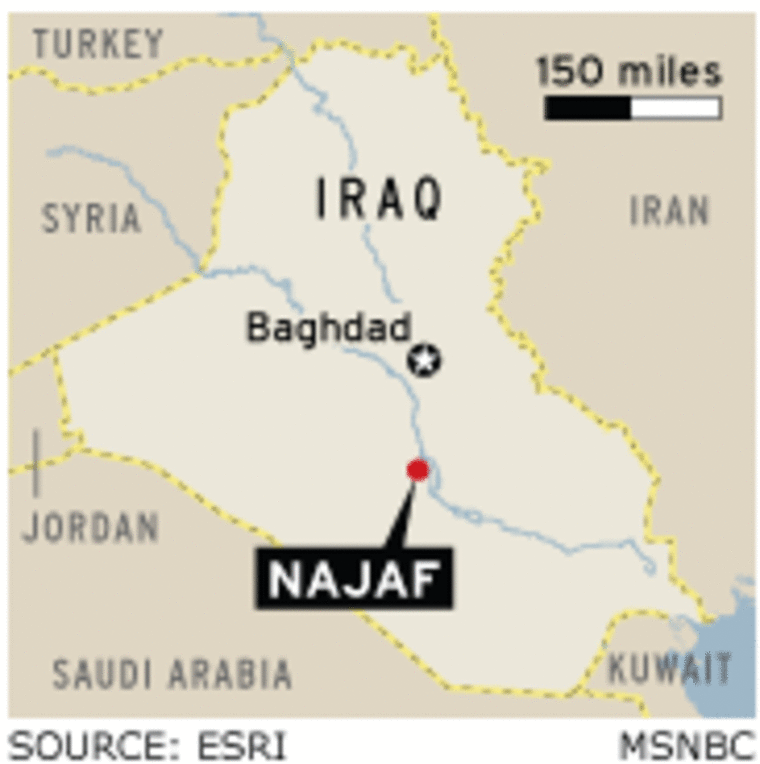U.S.-led forces handed over security control of Najaf province, whose capital is seat of Iraq’s most powerful Shiite clerics, to Iraq on Wednesday, calling it a major step forward in strengthening the government.
Iraqi authorities imposed a vehicle ban in the holy city of Najaf, where the handover ceremony took place in a football stadium amid tight security. Najaf is the third of Iraq’s 18 provinces to be transferred to Iraqi security forces.
“It is a major step forward in improving security and strengthening the authority of the government,” U.S. Major General Kurt Cichowski, who oversaw the transfer of authority, told assembled Iraqi religious and political leaders and soldiers and policemen sitting in the stands.
To guard against a possible attack by insurgents, officials ordered vehicles off the city’s streets and put police on every street corner.
President Bush is under pressure to withdraw troops amid rising U.S. and Iraqi casualties and growing public dissatisfaction with the war which contributed to his Republican party’s defeat at congressional elections last month.
While Prime Minister Nuri al-Maliki has pressed for a speedy handover, a recent U.N. report said the Iraqi police and army were deeply infiltrated by militias and other armed groups.
'Tug-of-war'
With a few major exceptions, Najaf, home to Iraq’s most senior cleric, Grand Ayatollah Ali al-Sistani, has been spared much of the violence rocking Baghdad and other areas where Shiites, Sunni Arabs and ethnic Kurds live side by side.
But it has not been immune to conflict between Shiite factions. Its status as a historic center of Shiite scholarship, and consequently political influence, means it will be especially important for the handover to succeed.

Najaf was the scene of a bloody three-week uprising by the Mehdi Army, a militia loyal to radical cleric Moqtada al-Sadr, against U.S. forces in August 2004. Today the Mehdi Army is one of several Shiite factions jostling for influence in the city.
A report by the Brussels-based International Crisis Group warned on Tuesday of tensions between the Mehdi Army and the Badr Brigades, a militia loyal to the powerful Supreme Council for Islamic Revolution in Iraq.
“Both Shiite paramilitary groups are engaged in a dangerous tug-of-war over the holy city of Najaf,” the report said.
Naval Lieutenant Michael Marley, a spokesman for the U.S.- led multinational force handing over control, said all but a handful of the U.S. and other troops in the province had pulled back in September and Iraqis were already effectively in charge.
'It’s just a game'
Hikma Habib, a 27-year-old policeman in Najaf, was skeptical of the handover, saying previous ceremonies handing over smaller areas of control had made little difference.
“One time I raised the Iraqi flag and we had a ceremony with the governor of Najaf present ... and now they are handing over security again,” Habib said.
“I don’t think this will be the last time, because the U.S. forces, when they want to arrest somebody, they take back control of security, and after the arrest they hand it back again to the Iraqis. It’s just a game.”
British forces handed over Muthanna province in July and Dhi Qar in September, both in the relatively calm Shiite south of the country. Britain has said it hopes to hand the oil-rich Basra province back to Iraqi control in the first half of 2007.